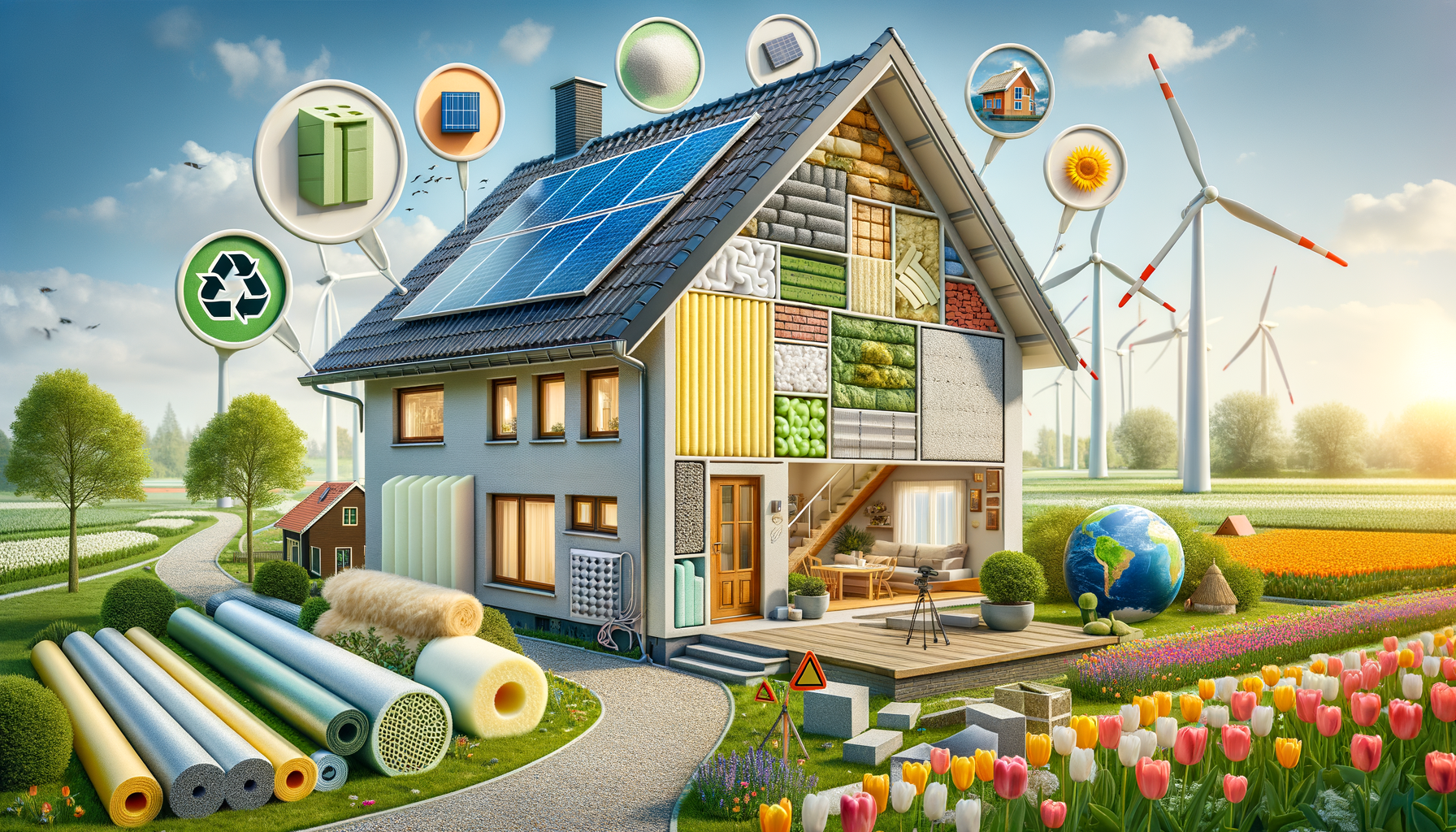Understanding the Role of Insulation in Energy Efficiency
In the pursuit of sustainable living, insulation plays a pivotal role in reducing energy consumption and enhancing the comfort of homes and buildings. In the Netherlands, where the climate demands efficient heating and cooling systems, insulation becomes even more critical. By minimizing heat loss in the winter and keeping interiors cool in the summer, insulation helps in maintaining a consistent indoor temperature, which directly translates to lower energy bills.
Insulation is not just about comfort; it’s an essential component in achieving energy efficiency. Effective insulation can reduce the need for heating by up to 30%, according to various studies. This reduction not only saves money but also significantly decreases carbon emissions, contributing to a greener environment. The Netherlands, being a frontrunner in sustainable practices, has numerous companies specializing in insulation to meet these environmental and economic goals.
Moreover, the government incentivizes energy-efficient upgrades, making it financially viable for homeowners and businesses to invest in insulation. These incentives include tax rebates and subsidies, which further encourage the adoption of insulation solutions. With a focus on reducing the carbon footprint, the Dutch government also emphasizes the importance of using sustainable materials in insulation, promoting the use of eco-friendly products.
Types of Insulation Materials and Their Benefits
The Netherlands offers a variety of insulation materials, each with unique properties and benefits. Understanding these options can help consumers make informed decisions based on their specific needs and preferences.
Some commonly used insulation materials include:
- Mineral Wool: Known for its fire-resistant properties, mineral wool is a popular choice for both residential and commercial buildings. It provides excellent thermal insulation and soundproofing, making it ideal for urban environments.
- Polystyrene (EPS and XPS): This synthetic material is lightweight and provides high thermal resistance. It is often used in wall and roof insulation, offering durability and moisture resistance.
- Cellulose: Made from recycled paper products, cellulose is an eco-friendly option that offers effective thermal and acoustic insulation. It is treated with non-toxic fire retardants, providing safety along with sustainability.
- Spray Foam: Offering superior air sealing capabilities, spray foam insulation is ideal for irregular spaces and hard-to-reach areas. It expands to fill gaps, providing an airtight barrier against heat loss.
Each material has its advantages, and the choice often depends on factors such as budget, environmental impact, and specific insulation needs. Insulation companies in the Netherlands guide consumers through these options, ensuring that the selected materials align with both performance expectations and sustainability goals.
Leading Insulation Companies in the Netherlands
The Dutch market is home to several well-regarded insulation companies renowned for their expertise and commitment to quality. These companies not only provide insulation services but also contribute to research and development in sustainable building practices.
Among the top-rated companies, some have made significant strides in integrating innovative technologies with traditional insulation methods. These companies focus on creating customized solutions tailored to the unique needs of each building, ensuring optimal energy efficiency.
One of the key factors that set these companies apart is their dedication to customer education. By informing clients about the benefits and processes of insulation, they empower consumers to make decisions that align with their sustainability goals. Additionally, these companies often participate in government programs aimed at promoting energy efficiency, further enhancing their reputation as leaders in the industry.
Another notable trend among Dutch insulation companies is their commitment to using environmentally friendly materials. By prioritizing the use of recycled and sustainable products, these companies contribute to the broader goal of reducing the carbon footprint of the construction industry.
Challenges and Opportunities in the Insulation Industry
While the insulation industry in the Netherlands is thriving, it faces several challenges that require strategic solutions. One of the primary challenges is the need for skilled labor. As the demand for insulation services grows, so does the need for trained professionals who can deliver high-quality installations.
Another challenge is the fluctuating cost of raw materials, which can impact the affordability of insulation solutions. Companies must navigate these price changes while maintaining competitive pricing for their clients. This requires a balance between cost-effective sourcing and maintaining the quality of materials used.
Despite these challenges, the industry is ripe with opportunities. The increasing emphasis on sustainability and energy efficiency opens doors for innovation and growth. Companies that invest in research and development to create more efficient and sustainable insulation solutions are likely to gain a competitive edge.
Furthermore, the government’s continued support through incentives and regulations aimed at reducing energy consumption provides a favorable environment for the insulation industry to flourish. By aligning their strategies with national sustainability goals, insulation companies can contribute significantly to the Netherlands’ environmental objectives.
Conclusion: The Future of Insulation in the Netherlands
The insulation industry in the Netherlands is poised for growth as the country continues to prioritize energy efficiency and sustainability. With a range of high-quality materials and expert companies leading the charge, the future looks promising for both consumers and businesses seeking to reduce their environmental impact.
As the industry evolves, it will be crucial for companies to address challenges such as labor shortages and material costs while seizing opportunities for innovation. By doing so, they can continue to provide valuable services that align with the Netherlands’ commitment to a greener future.
For homeowners and businesses alike, investing in insulation is not just a financial decision but a step towards a more sustainable lifestyle. With the support of knowledgeable insulation companies, achieving energy efficiency has never been more accessible or impactful.

Leave a Reply